Afghanistan ruled by the gun: Jesuit
People
After living in Pakistan for 30 years, Fr Renato Zecchin SJ is saddened to see neighouring Afghanistan plunged into further chaos and despair after the Taliban stormed Kabul last month.
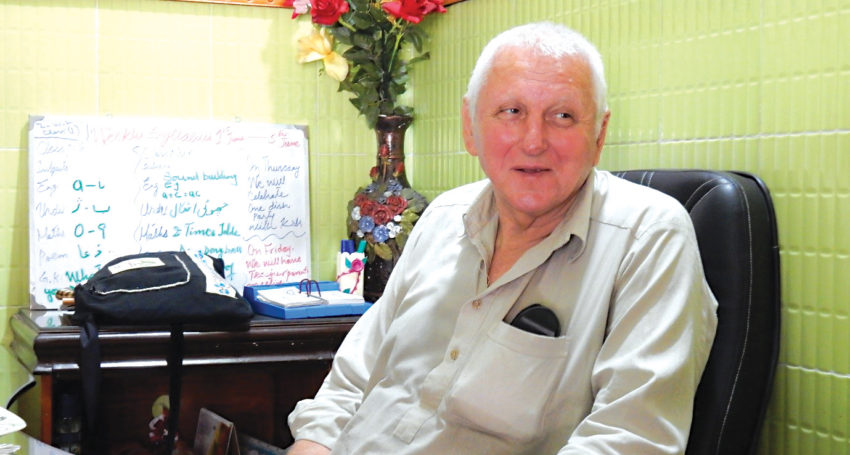
Fr Renato, 74, returned to his hometown of Adelaide in 2019 to take up a position as novice master for the Jesuits at Athelstone.
Prior to that, the Rostrevor College old scholar was working at Loyola Hall in charge of the Jesuit candidates program Ignatian retreats and Non Violent Communication in Lahore and also serving in the Archdiocese of Lahore parishes and in the three Jesuit schools in the city of 15 million people.
Advertisement
He told The Southern Cross that after 40 years of war and instability the Afghan people wanted, and deserved, peace but he feared the Taliban were “playing games”.
“They’re clever because they know they have the upper hand,” he said.
“The Americans wanted to leave, they felt they’d done their bit, and the Taliban have been able to recruit groups in the northern areas, that’s why they seem to have just walked in and taken over.
“They go to the tribal leaders and tell them if they surrender they can be in charge and they’ll give them power and resources.
“Now that’s a new way of doing things, before they were all Pashto speaking – now not all the Taliban are Pashtun.”
(The Taliban, or ‘students’ in the Pashto language, emerged in the early 1990s in northern Pakistan following the withdrawal of Soviet troops from Afghanistan. It is believed that the predominantly Pashtun movement first appeared in religious seminaries which preached a hardline form of Sunni Islam.)
Fr Renato said Afghanistan was “ruled by the gun”.
“It’s terrible, it’s all to do with fear,” he said.
“Secondly, it’s manipulation of Islam … you have to be careful about what’s cultural and what’s Islam.
“Wearing the burka, that’s not in the Koran, it’s a cultural issue, just as the place of women is cultural, not Islam.”
Fr Renato said he hoped the many educated young women and men in the country would be heard not just now, when the world is watching Afghanistan, but in the future.
“The Taliban is trying to build up some sort of moderate view so the international community will have interaction with them,” he said.
“They need help, they can’t be completely isolated.”
While those who have worked with the Americans and their allies or been part of the previous government will be desperate to leave Afghanistan, Fr Renato said he suspected not everyone would want to leave.
He also said there was a lot to play out in terms of the Taliban controlling the whole country and whether opposing forces would take up arms.
Advertisement
“At the moment they’re silent but they’re recruiting … you wait,” he said.
“But what the people want is peace, not war, you’re talking about 40 years, it’s been horrible, it’s really tragic.”
Fr Renato has witnessed the death and destruction caused by suicide bombers in Pakistan in the 80s and while he never felt threatened he was aware of the danger and took steps to stay as safe as possible.
“The people were very good to me, they were very helpful and watched my back,” he said.
Born in Castel de Godego in Treviso, Italy, Fr Renato was a child when his family migrated to South Australia. In 1967-69 he was called up to do National Service, served in the army in Malaysia and joined the Jesuits as a brother at the age of 25.
He worked with young people on the streets in Richmond, Melbourne, before taking up the opportunity to volunteer for the Jesuit Mission in Pakistan where he was again involved in youth work.
In Lahore the desire for priesthood took hold of him and he was ordained in 1992. He returned to Pakistan where the Jesuit mission was now being run by the Sri Lankan Province and became Superior.
Fr Renato first witnessed the plight of the Afghan people when working through Caritas Rawalpindi in refugee camps in northern Pakistan after the Russians invaded Afghanistan. The Pakistan Government took in five million Afghan refugees at the time, many of whom settled in Pakistan or returned to their homeland.
An exception was the persecuted Hazara people who fled to countries such as Australia.
While he is grateful to Australians for accepting the Hazaras, Fr Renato said he could not understand why the Federal Government refused to grant them permanent visas despite having lived here for nearly 10 years.
“How come the Government is so narrow minded, how come it isn’t showing compassion, it’s so wrong,” he said.
Proficient at Urdu, the national language of Pakistan and also understood by many Afghanis, Fr Renato met Afghan asylum seekers who had been in Quetta in northern Pakistan at the then Mercy House of Welcome Kilburn (now run by Vinnies) and at the Kilburn Detention Centre with refugee advocate Sr Meredith Evans until COVID restrictions interfered.
Related Story
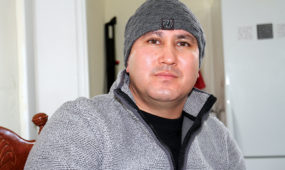 Opinion
Opinion
Please Mr Morrison …
“It’s a horrible time for them,” he said, referring to the Taliban victory and the impact on the asylum seekers’ family members back in Afghanistan.
Asked about the United States’ decision to invade Afghanistan, Fr Renato said the Americans “lost their way”.
“They wanted to bring in their way of life and their democracy, that doesn’t work,” he said, “but the good they did shows what you can do if you have an open policy, the value of education and giving people opportunities.”
But as in any conflict, he said it was the people who had been suffering for so long who were “suffering again”.
Fr Renato spent a week in Kabul in 2000 when the Jesuit Refugee Service was looking at ways to support Afghani refugees in Pakistan.
He described Kabul as a “beautiful place surrounded by mountains” but said it was also a “traumatised and brutalised city”.
“In one area where the warlords had been fighting against each other, the neighbourhood was completely flattened, it was like an earthquake had been through it.”



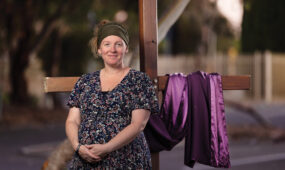
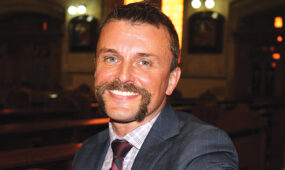
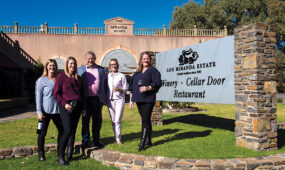
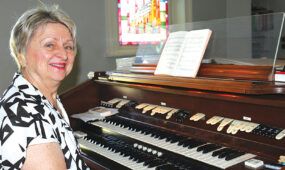

Comments
Show comments Hide comments